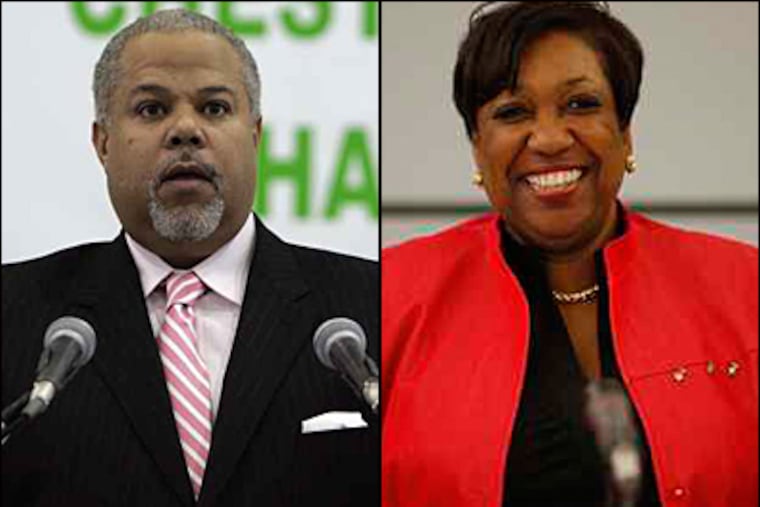Charter schools: Give us a fair shake
Tension between charter school operators and the Philadelphia School District was obvious last night at a City Council hearing on a proposed policy that would change the way charter schools can increase their enrollment or change their grade configuration.

Tension between charter school operators and the Philadelphia School District was obvious last night at a City Council hearing on a proposed policy that would change the way charter schools can increase their enrollment or change their grade configuration.
"This whole thing is illegal," Martin Ryder, chairman of the World Communications Charter School, told members of City Council last night.
Ryder argued, as have several other charter-school officials, that under state law, charter schools are intended to be independently operated as alternatives to the school district, even though the district awards the charters.
Last night's hearing before Council's education committee was held in response to an outcry in September when the school district announced plans to change its charter-school policy to permit charter schools to apply to increase student enrollment or change the grade composition of a school only every five years, when a school's charter is up for renewal.
The district also said that charter schools seeking to expand would have to demonstrate that the schools are performing academically and that the schools are well-managed.
Charter-school operators complained to local and state officials that this was an unfair and illegal attempt to limit charter-school enrollment. They also said that the charter schools, which advocates say have met federal and state academic requirements at a higher rate than traditional public schools, are being held to a different standard.
Since then, the district has revised its proposed policy and would now permit schools to apply for changes during the third year before the five-year charter renewal.
But even that change has met with opposition from some charter schools and their supporters.
Until the proposed charter-school policy change, the School Reform Commission considered requests from charters on an individual basis and has had no policy for evaluating the success of each school.
Angela Villani, an official of the Mariana Bracetti Academy Charter School, in Kensington, said that the school has not been able to meet Adequate Yearly Progress - as defined under the federal No Child Left Behind Act - because it has realized that each year its 6th graders come to the six-to-12-grade school far behind grade level in reading and math.
"We applied to change our grade configuration to a K-12 two years ago," Villani said, asserting that the school would achieve better results if students were admitted at the earlier kindergarten level, rather than at 6th grade.
Under the proposed policy, she said, "We can't implement our solution to fix our problem because we haven't made AYP."
In her testimony earlier, Superintendent Arlene Ackerman said that the district "supports charter schools that work."
"As laboratories of innovation, successful charter schools have paved the way for promising reforms in public education," she said.